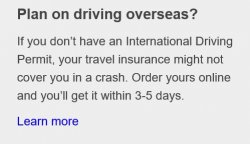OZDUCK
Established Member
- Joined
- Aug 1, 2010
- Posts
- 4,712
Thanks for this. I can see why you are so fluent in French - well done. I can speaksome words in a few languages but my Australian accent is so strong I murder them all.Sorry I forgot to reply to this earlier.
No big mystery, when I was young I was friends with the son of a French diplomat who was based in Perth.
He lived around the corner and was in my class at school.
We made a deal that I would help him learn English if he taught me French.
Later I studied French at high school and university.
Then I travelled as a young adult and spent time in France, Belgium, Switzerland and Tunisia.
After a long period of no international travel due to the cost of raising children, more recently I have spent more time in France as well as Morocco and especially New Caledonia. Wherever I go I make a point of staying with local people and avoiding tourists. I have even pretended that I don't speak English.
I started that to avoid socialising with other anglophones - Aussies and Brits and Yanks. Not because I disliked them but because I wasn't in France to speak English.
Over the years I have made friends in Paris, Lyon, Marseille and Nouméa and it is probably those friendships which have improved my language skills the most.
Although I have completed an advanced French course online through a Paris unviersity and also paid for some private tutoring here before each trip to make sure I am not rusty when I arrive! I would not want my French speaking friends to feel like I was using them as unpaid teachers!
Something that might, or might not, be of interest to you is that back in the day one of my co-workers was born in France and spent her first 20 or so years there before moving to the UK and eventually to Oz where she has lived for about 30 years. She says that when she visits France she gets complimented for speaking such "classical French". Because she has been out of the country so long she hasn't picked up all the new words and "franglais" that has slipped into the language, despite the best efforts of the Académie française.















